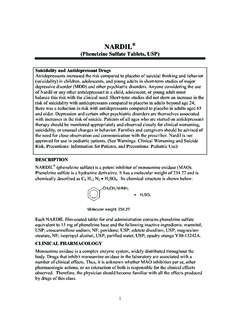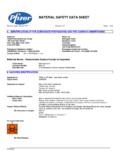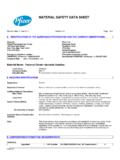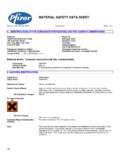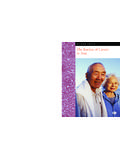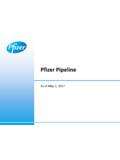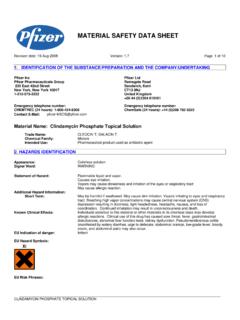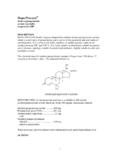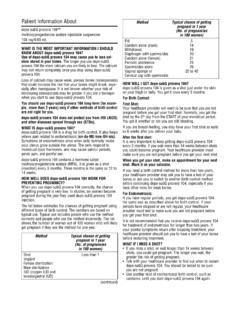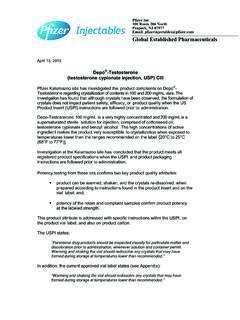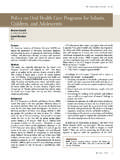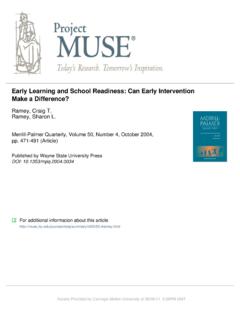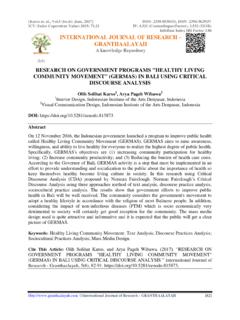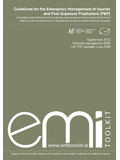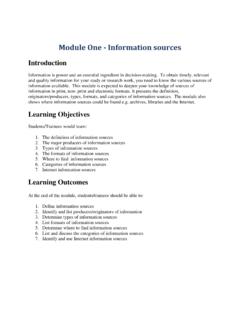Transcription of Trovan Fact Sheet Final - Pfizer
1 1 Trovan fact Sheet The first half of 1996 marked the beginning of the most serious cerebral spinal meningitis epidemic ever recorded in Nigeria. The epidemic took almost 12,000 lives over a six-month period, affected close to 110,000 people and constituted a severe public health crisis for the government of Nigeria. Amongst all recorded cases, the fatality rate was as high as 20% in the first weeks, and eventually decreased to It is against that backdrop that Pfizer proposed to conduct a Trovan clinical trial in Nigeria with the goal of bringing to that country a life saving, innovative, less painful and cost-effective form of antibiotic that could be used effectively to treat epidemic meningococcal meningitis, including in children. Before conducting the Trovan study in Kano, Pfizer sought and obtained all necessary approvals from relevant federal and state government agencies in Nigeria.
2 In that regard, Pfizer has at least 12 letters between the company and Nigeria s NAFDAC, Ministry of Health and Ministry of Finance as well as the Food and Drug Administration, discussing and approving the study. Pfizer conducted the Kano study using the best medical knowledge available at the time, and always acted in the best interests of the approximately 200 children involved (half were treated with Trovan and half with Ceftriaxone). The protocol approved by Nigerian authorities anticipated risks and detailed procedures to manage those risks. At Kano s Infectious Disease Hospital (IDH), local Nigerian nurses explained - in the native language, Hausa - the details of the study to parents or guardians, including that participation was voluntary. Oral consent was obtained before any patient was admitted into the study, and at no point were the parents or guardians separated from their children.
3 Children who participated in the Trovan study were given a series of tests and physical exams to ensure that the clinical diagnosis of meningitis was consistent with laboratory results. Patients were randomized to receive either Trovan or Ceftriaxone and were given a bracelet and a pink identification card both stating which drug he or she had received. Patients were treated with either Trovan or Ceftriaxone for five consecutive days and they were closely monitored in the hospital or out-patient clinics, depending on the status of each patient s health. The fact is that results of the study plainly proved that Trovan helped save lives. With a survival rate of , Trovan was at least as effective as the best treatment available at Kano s IDH. The overall survival rate in Nigeria was less than 90%. At the time of the Kano study, Trovan was in late stage development and had been tested clinically in more than 5,000 patients in the United States, Europe and elsewhere.
4 Results of those studies demonstrated Trovan to be effective against several types of bacteria known to cause meningitis, to have excellent activity against all meningitis pathogens, and to penetrate very well into the cerebrospinal fluid (CSF) to effectively treat the disease. In addition, Trovan had been administered to children in two pharmacokinetic (dosing) studies that showed the medicine to behave similarly in adults as it did in children. At least five scientific articles published prior to 1996 also express support for the use of quinolones (the class of drugs to which Trovan belonged) in children as medically indicated and ethically justified. 2 Patients in the Trovan study already had serious symptoms of meningitis before they were treated and it is well documented that advanced meningitis can lead to brain damage, coma and death. All clinical evidence points to the fact that any deaths occurring during the Trovan clinical study were the direct result of the illness and not the treatment provided to patients.
5 Survivors of meningitis also can suffer the very same long-term complications unjustly and erroneously attributed to the Trovan clinical trial including, but not limited to, hearing loss, mental retardation, paralysis and seizures. At the end of the study, any child who required additional attention was transferred to a local Kano hospital for continued care at Pfizer s expense. Four weeks after concluding the study - on May 15, 1996 - a follow-up exam of study participants was conducted by Pfizer . No unusual side effects, unrelated to meningitis, were observed by the patients who returned for the exam. The results of the study also point to the efficacy of the comparator drug, Ceftriaxone, at the doses administered. After the initial dose of 100 mg/kg dose, subsequent doses of Ceftriaxone were reduced to 33 mg/kg to diminish the significant pain resulting from the intramuscular injection.
6 At the reduced dosage level, the amount of the drug was still approximately 620 times the level required to kill the meningitis bacteria. A clinical study of Ceftriaxone sponsored by Doctors Without Borders in 2003 confirms that a total dose of 100 mg/kg, significantly lower than the one used in the Trovan study in Nigeria, was effective in treating epidemic meningococcal meningitis. Pfizer s contribution during the 1996 meningitis epidemic in Nigeria was not limited to treating patients in the Trovan clinical study. The company donated over N18 million to Kano State in medicines, equipment and materials to help fight the concurrent epidemics involving associated diseases, such as cholera and measles, ongoing at the time. Pfizer has a long history of commitment to the well-being of the Nigerian people. The company has partnered with the government and citizens of Nigeria for more than 50 years to support programs that improve health standards and accessibility to medical treatment.
7
